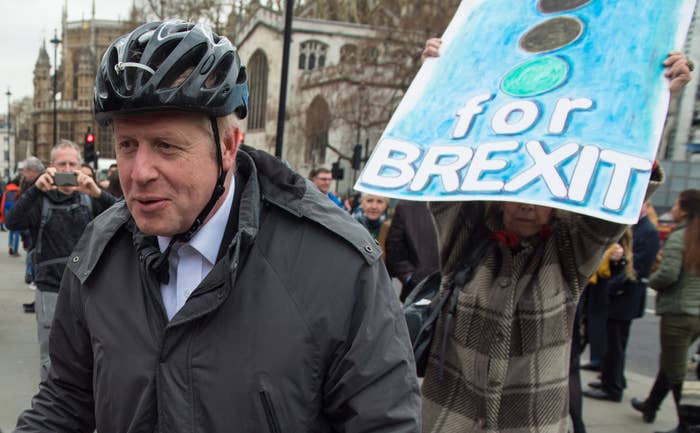
Boris Johnson will be summoned to appear in court to face allegations of misconduct in a public office, after a businessman brought a private prosecution against him.
Marcus Ball crowdfunded almost a quarter of a millions pounds to bring Johnson to court, over allegations he misled the public during the EU referendum campaign.
The case references the now infamous "£350 million pounds per week" figure, which was printed on the side of a bus during the campaign. It claimed that this was the amount that the UK sends to the EU each week and could be better spent in Britain on things like the NHS.
Johnson is also accused of repeating the claim during the 2017 general election.
Ball's legal team lodged an application at Westminster magistrates' court to allow a private prosecution, which has been granted by district judge Margot Coleman.
The application to the court claimed that had Johnson "repeatedly lied and misled the British public as to the cost of EU membership, expressly stating, endorsing or inferring that the cost of EU membership was £350 million per week," adding: "whilst doing so he was acting as a public officer and using the platforms and opportunities offered to him by virtue of his public office."
In her judgment, Coleman said: "The allegations which have been made are unproven accusations and I do not make any findings of fact.
"Having considered all the relevant factors I am satisfied that this is a proper case to issue the summons as requested for the three offences as drafted. The charges are indictable only.
"This means the proposed defendant will be required to attend this court for a preliminary hearing, and the case will then be sent to the Crown Court for trial. The charges can only be dealt with in the Crown Court."
Johnson’s lawyers had argued that the case was a “vexatious” attempt to undermine the result of the EU referendum, saying: "the application is a (political) stunt. Its true purpose is not that it should succeed, but that it should be made at all. And made with as much public fanfare as the prosecution can engender."
However, the judge rejected their claims, saying that the issues put forward by the defence were "trial issues to be determined following service of all the evidence."
Johnson denies the allegations.
